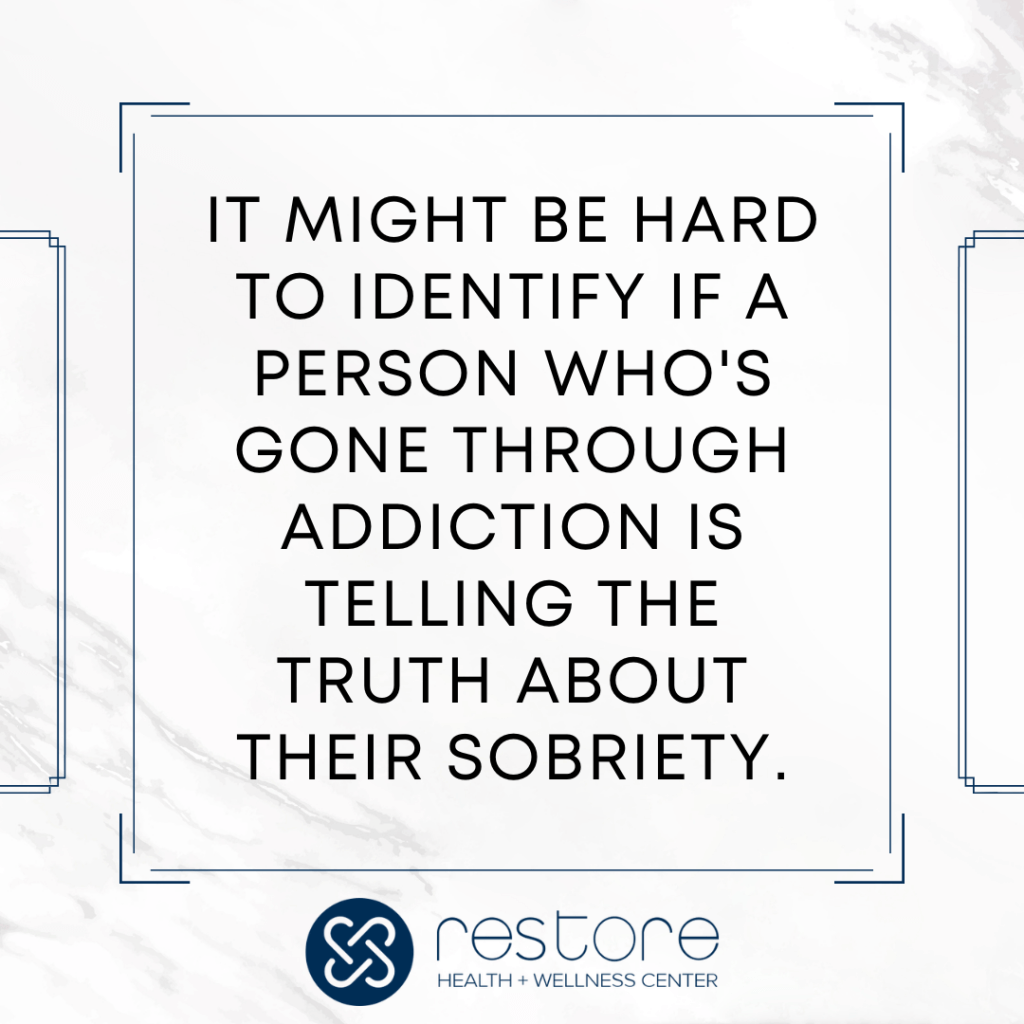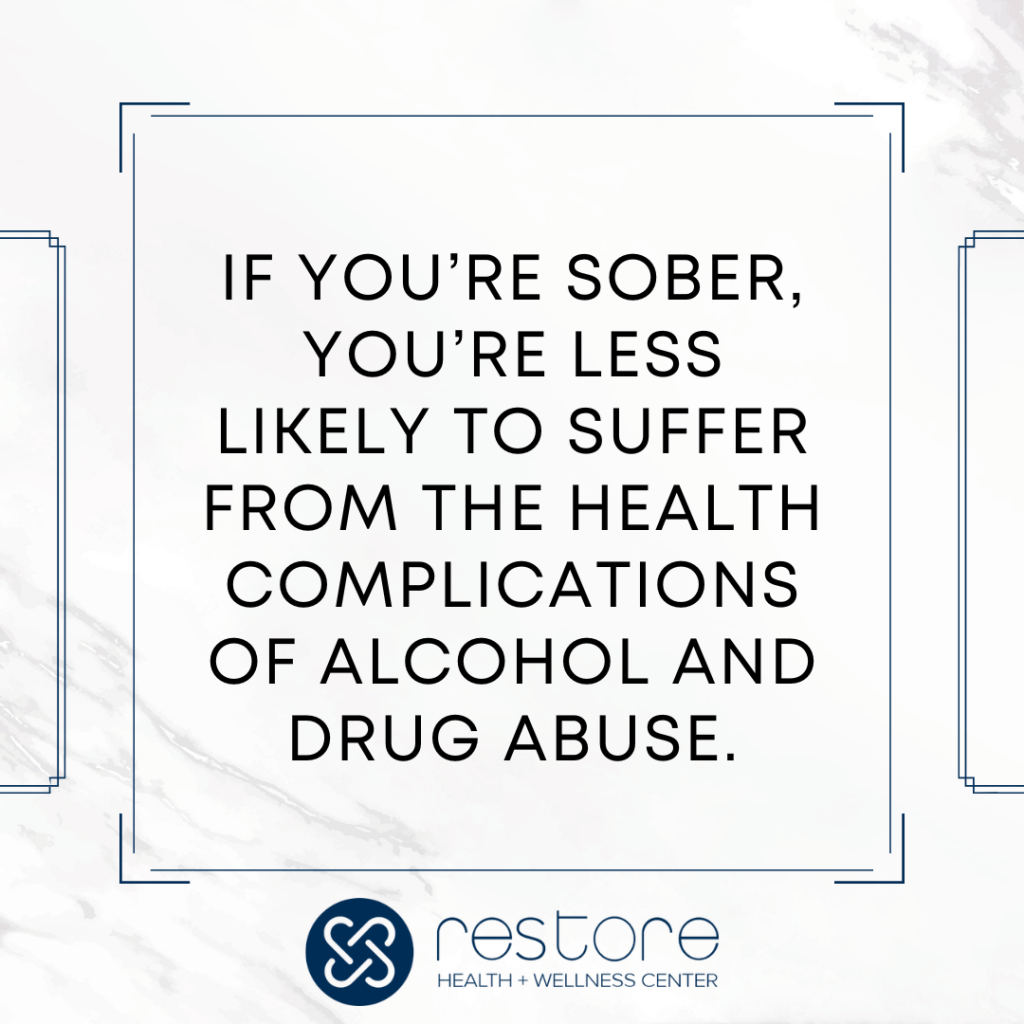It’s not always easy to tell if someone is sober. In early recovery, people can quickly say they abstain from alcohol or drugs, which may not always be genuine. But as time goes on, sobriety becomes more of a way of life, and it can be harder to fake.
If you, a family member, or a friend is struggling to stay sober, this article will discuss 7 signs that can help prove to yourself and others that you are indeed sober.
7 Signs For You To Know You Are Sober
It might be hard to identify if a person who’s gone through addiction and is now in recovery is telling the truth about their sobriety. Here are some seven signs that may help you decide if someone is sober:

1. You’re no longer using alcohol or drugs as a crutch.
In early sobriety, it is not uncommon to rely on alcohol or drugs as a crutch to get through difficult situations. But as you become sober, you should find that you don’t need to rely on substances. This could mean that you can drink without getting drunk or high or go to social events without using drugs or alcohol as a form of social lubrication.
2. You’re honest about your sobriety.
One of the most important aspects of sobriety is honesty with yourself and others. If you’re truly sober, you should be able to talk openly and honestly about your recovery without feeling shame or embarrassment. You should also be honest about your slip-ups or relapses if they occur.
3. You’re no longer making excuses for your drinking or drug use.
In the early days of sobriety, making excuses for your drinking or drug use is common. But as you become sober, you should find that you no longer need to make excuses for your past behavior. This could mean that you can talk about your addiction openly and honestly or that you no longer feel the need to justify your drinking or drug use to yourself or others.
4. You’re taking responsibility for your recovery.
Recovery is not a passive process—it requires active participation and effort. If you’re genuinely sober, you should be active in your recovery by going to counseling or therapy, attending self-help groups, or reading self-help books.
Taking responsibility for your sobriety also means being honest about your relapse risks and making plans to avoid them.

5. You no longer use people or things to cope with life.
In early sobriety, it’s common to use people or things to cope with life’s difficulties. But as you become sober, you should find that you no longer need to rely on others or on external things to help you cope.
This could mean that you’re able to deal with your emotions healthily or that you no longer feel the need to numb out with alcohol or drugs.
6. You’re taking care of yourself.
Sobriety is not just about abstaining from alcohol and drugs—it’s also about taking care of yourself physically, mentally, and emotionally. If you’re truly sober, you should be making an effort to care for yourself in all areas of your life.
This could mean eating a healthy diet, exercising regularly, and getting enough sleep. It could also mean dealing with your emotions healthily, such as journaling, meditating, or attending therapy.
7. You’re living a sober lifestyle.
Living a sober lifestyle means more than just abstaining from alcohol and drugs—it also means making changes in other areas of your life that may have contributed to your addiction. This could mean changing your friends, changing your job, or moving to a new city.
It could also mean changing your daily routine, such as avoiding places or activities that trigger your cravings. If you’re truly sober, you should try to live a sober lifestyle.

The Importance of Sobriety
Sobriety is important for many reasons. First and foremost, it’s essential for your health. If you’re sober, you’re less likely to suffer from the health complications of alcohol and drug abuse, such as liver disease, cancer, and heart disease.
Sobriety is also crucial for your relationships. If you’re sober, you’re more likely to have healthier and more fulfilling relationships with your family, friends, and significant others.
And finally, sobriety is vital for your overall well-being. If you’re sober, you’re more likely to experience positive emotions and lead a happy and fulfilling life.
How to Inspire Yourself to Be Sober
If you’re struggling with sobriety, it can be helpful to remember why you decided to become sober in the first place. What were your motivations for quitting drinking or using drugs? Was it to improve your health? To repair your relationships? To pursue your dreams?
It can also be helpful to remind yourself of the progress you’ve made in sobriety. If you’ve been sober for a week, a month, or even longer, that’s something to be proud of! Remember how far you’ve come and how much better you feel now that you’re sober.
Finally, reaching out for support from others who are going through the same thing can be helpful. Many support groups and online forums exist for people trying to stay sober. Talking to others who understand what you’re going through can be a great way to stay motivated and inspired in your sobriety journey.

Conclusion
If you or someone you know is struggling with sobriety, help is available. We at Restore Center offer various services that can help you on your journey to recovery, including detoxification, counseling, and more. Contact us today to learn more about how we can help you achieve and maintain sobriety.












